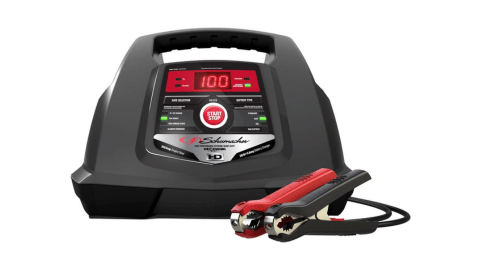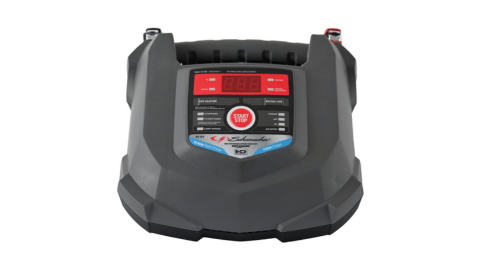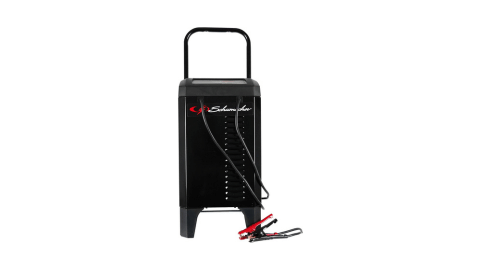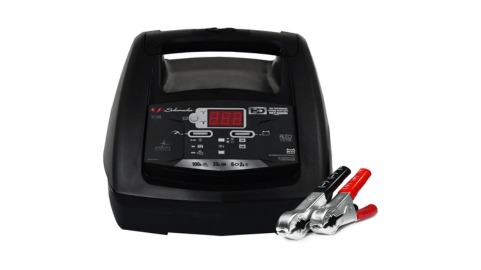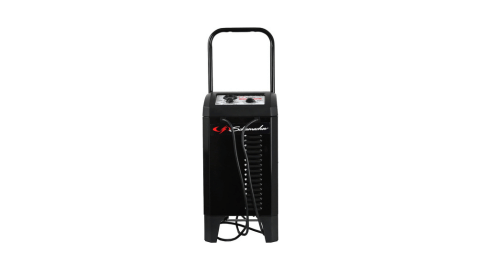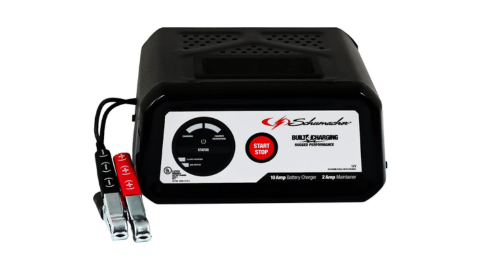The Schumacher battery charger stands out for its reliable performance, making it a top choice for maintaining and charging vehicle batteries. Built with advanced technology, this charger automatically adjusts to the needs of your battery, ensuring optimal power without overcharging. Its compact design is perfect for on-the-go use, while its intuitive interface makes operation simple for any user. Whether you need a quick boost or a full charge, Schumacher provides the efficiency and convenience you need to keep your vehicle powered and ready to go anytime.
Best Schumacher Battery Charger Buying Guide
Battery chargers are essential devices for maintaining and reviving the batteries in various vehicles and equipment. Whether you’re a car enthusiast, a professional mechanic, or simply a responsible vehicle owner, having a reliable battery charger can save you time, money, and frustration. These devices come in various types and sizes, each designed to meet specific charging needs. When selecting the best battery charger, it’s crucial to consider several factors that can impact performance, versatility, and overall value. This guide will walk you through the key considerations to help you make an informed decision and choose a battery charger that will serve you well for years to come.
Charging Power and Amperage
One of the most critical factors to consider when choosing a battery charger is its charging power, typically measured in amperage. The amperage determines how quickly the charger can replenish a battery’s charge. Lower amperage chargers (around 2-10 amps) are suitable for maintaining batteries or charging them slowly over an extended period. These are ideal for everyday use and long-term battery maintenance. Higher amperage chargers (25-50 amps or more) can charge batteries much faster and are often used in professional settings or for emergency situations where rapid charging is necessary.
It’s important to note that while higher amperage chargers work faster, they’re not always the best choice for every situation. Some batteries, particularly older or more sensitive ones, may benefit from a slower, gentler charge. Additionally, many modern chargers offer variable amperage settings, allowing you to adjust the charging rate based on your specific needs and the battery’s condition.
Battery Types and Compatibility
Different vehicles and equipment use various types of batteries, each with its own charging requirements. The most common types include lead-acid (both flooded and sealed), AGM (Absorbent Glass Mat), gel cell, and lithium-ion batteries. When selecting a battery charger, ensure it’s compatible with the types of batteries you’ll be charging most frequently.
Many advanced chargers are designed to work with multiple battery types and can automatically detect and adjust their charging parameters accordingly. This versatility can be particularly useful if you have various vehicles or equipment with different battery types. Some chargers even offer specific modes for deeply discharged batteries or for use in cold weather conditions, further enhancing their versatility.
Smart Charging Technology
Modern battery chargers often incorporate smart charging technology, which offers several advantages over traditional chargers. Smart chargers can analyze the battery’s condition and adjust the charging process accordingly. This includes features such as multi-stage charging, which varies the charging rate and voltage throughout the process to optimize battery health and longevity.
Look for chargers with automatic voltage detection, which can identify whether you’re charging a 6V, 12V, or 24V battery and adjust accordingly. This feature can prevent accidental overcharging and damage to your battery. Some advanced models also offer desulfation modes, which can help revive batteries that have been sitting idle for extended periods and have developed sulfate crystals on their lead plates.
Safety Features
Safety should be a top priority when dealing with battery charging, as improper charging can lead to dangerous situations. Look for chargers with comprehensive safety features such as reverse polarity protection, which prevents damage if the charger is connected to the battery terminals incorrectly. Overcharge protection is another crucial feature that stops the charging process once the battery is fully charged, preventing damage from excessive voltage.
Spark-resistant clamps and short circuit protection are additional safety features to consider. Some chargers also include built-in cooling fans to prevent overheating during extended use. For outdoor or garage use, consider models with weatherproof or water-resistant casings to protect against moisture and dust.
Portability and Design
The size and weight of the battery charger can be important factors, especially if you plan to move it frequently or use it in different locations. Compact, lightweight chargers are ideal for home use or for keeping in your vehicle for emergencies. However, these may sacrifice some power and features compared to larger, more robust models.
Consider the length of the charging cables and whether they’ll be sufficient for your needs. Longer cables offer more flexibility in terms of placement but can be cumbersome to store. Some chargers come with built-in cable management systems to help keep things organized.
The display and user interface are also important design considerations. Look for chargers with clear, easy-to-read displays that show important information such as charging status, battery voltage, and any error messages. Intuitive controls make it easier to select the appropriate charging mode and adjust settings as needed.
Additional Features and Functionalities
Many battery chargers come with additional features that can enhance their functionality and convenience. Jump-start capability is a valuable feature that allows the charger to provide a quick burst of power to start a vehicle with a dead battery. This can be particularly useful in emergency situations.
Some chargers offer battery maintenance or “float” modes, which can keep a battery at optimal charge levels when stored for long periods. This is especially useful for seasonal vehicles or equipment that may sit idle for months at a time.
Data recording and analysis features are becoming more common in high-end chargers. These can provide detailed information about your battery’s health and charging history, which can be useful for diagnosing problems or optimizing maintenance schedules.
Durability and Warranty
Given that battery chargers are often used in garage or workshop environments, durability is an important consideration. Look for models with rugged construction that can withstand occasional bumps or drops. Robust clamps and cables are also important, as these are often the first components to wear out with frequent use.
Check the warranty offered by the manufacturer. A longer warranty period often indicates the manufacturer’s confidence in their product’s durability. Some manufacturers offer extended warranties for professional use, which can be valuable if you plan to use the charger frequently or in a commercial setting.
Conclusion
Selecting the best battery charger involves carefully considering factors such as charging power, battery compatibility, smart charging technology, safety features, portability, additional functionalities, and durability. By assessing your specific needs in each of these areas, you can choose a charger that will serve you well in maintaining and reviving your batteries.
Remember that the ideal battery charger balances power, versatility, and ease of use in a way that aligns with your typical usage patterns and the types of batteries you’ll be charging most frequently. Take the time to research different models, read user reviews, and consider your long-term needs. While it may be tempting to opt for the most powerful or feature-rich model available, the best charger for you is the one that meets your specific requirements without unnecessary complexities or expenses.
By choosing wisely, you’ll acquire a tool that not only meets your current battery maintenance needs but also adapts to potential future requirements. A high-quality battery charger is an investment in the longevity of your batteries and the reliability of your vehicles and equipment. With the right charger in your toolset, you’ll be well-prepared to keep your batteries in optimal condition, ensuring they’re ready when you need them most.

